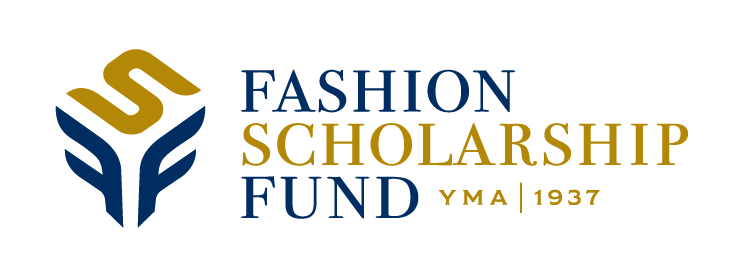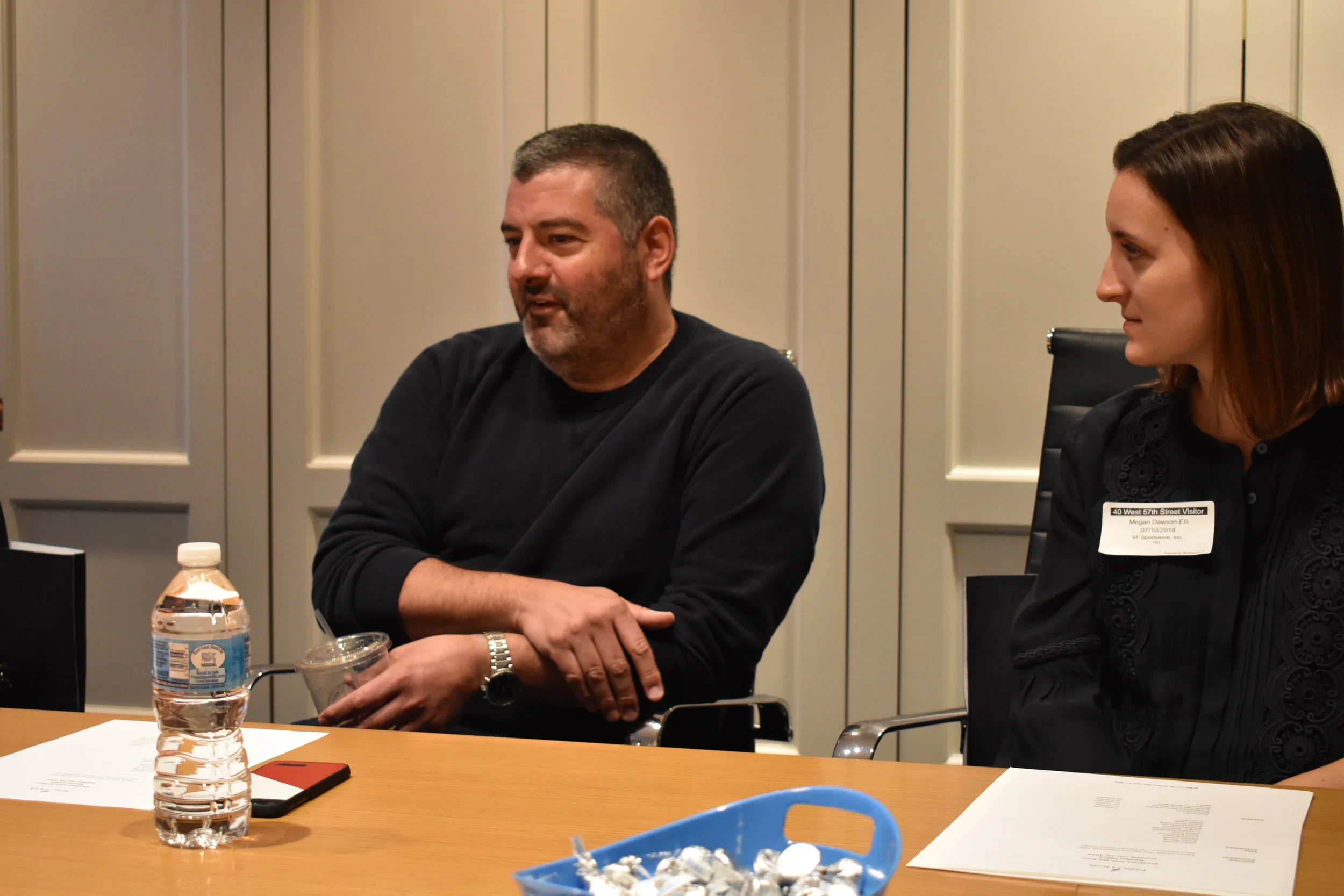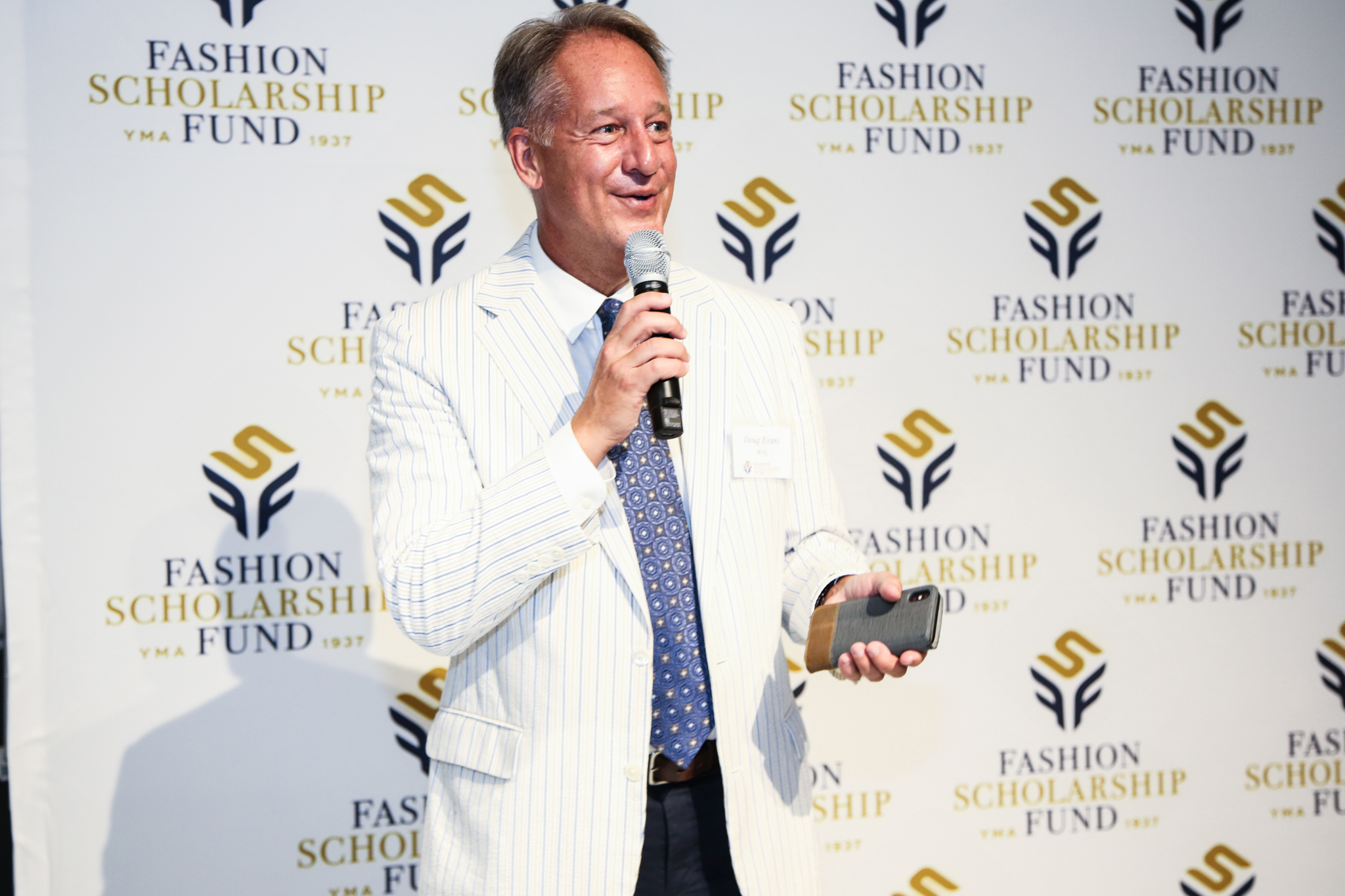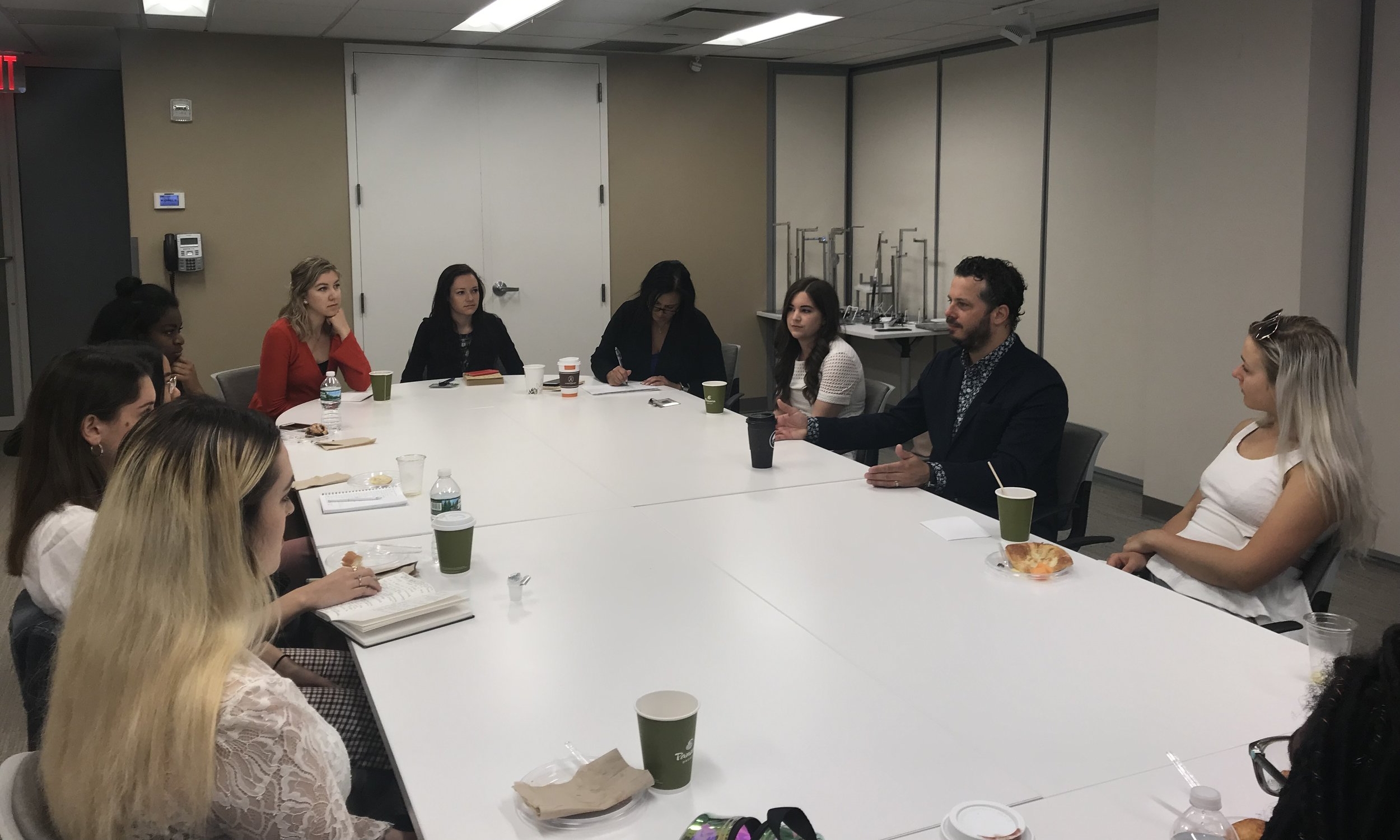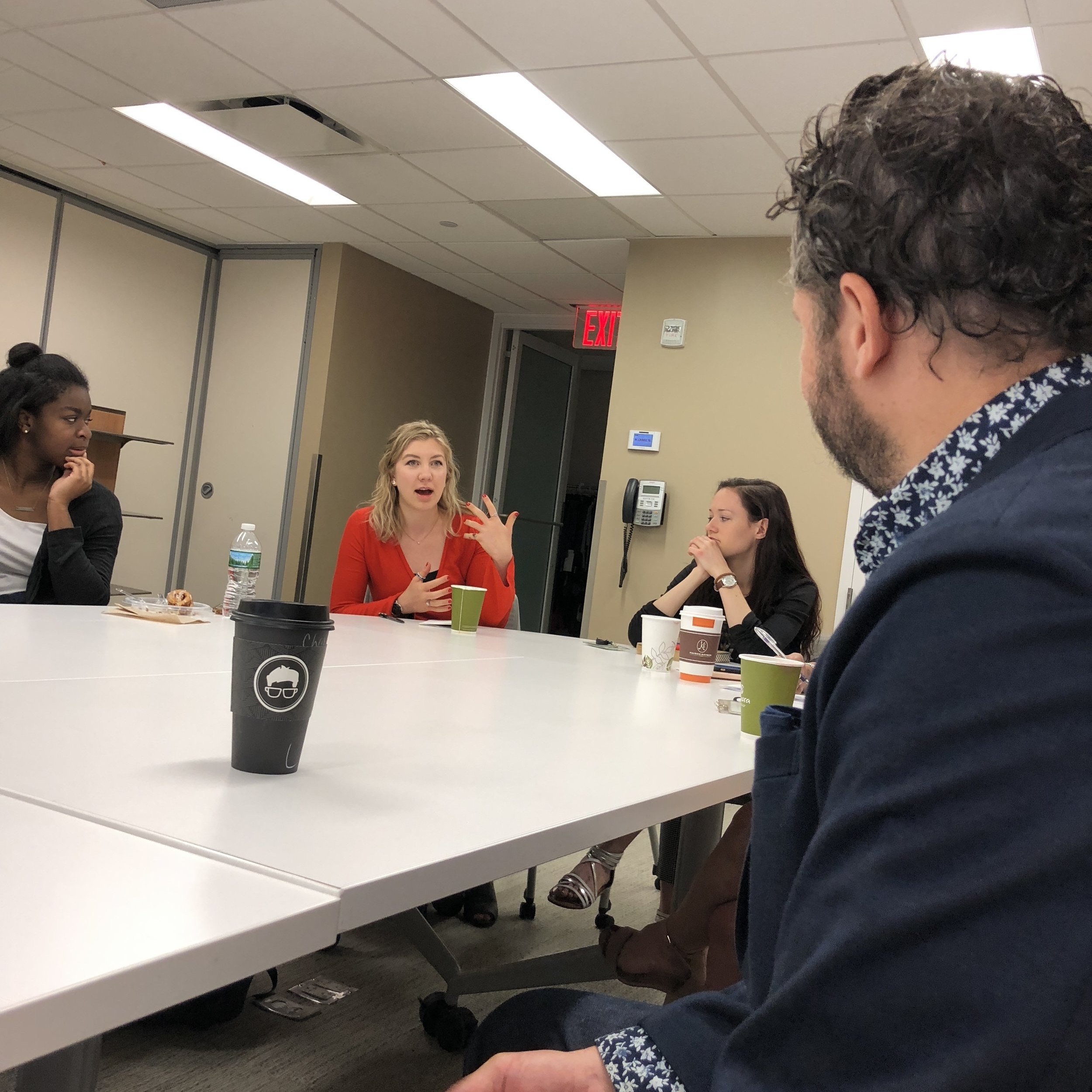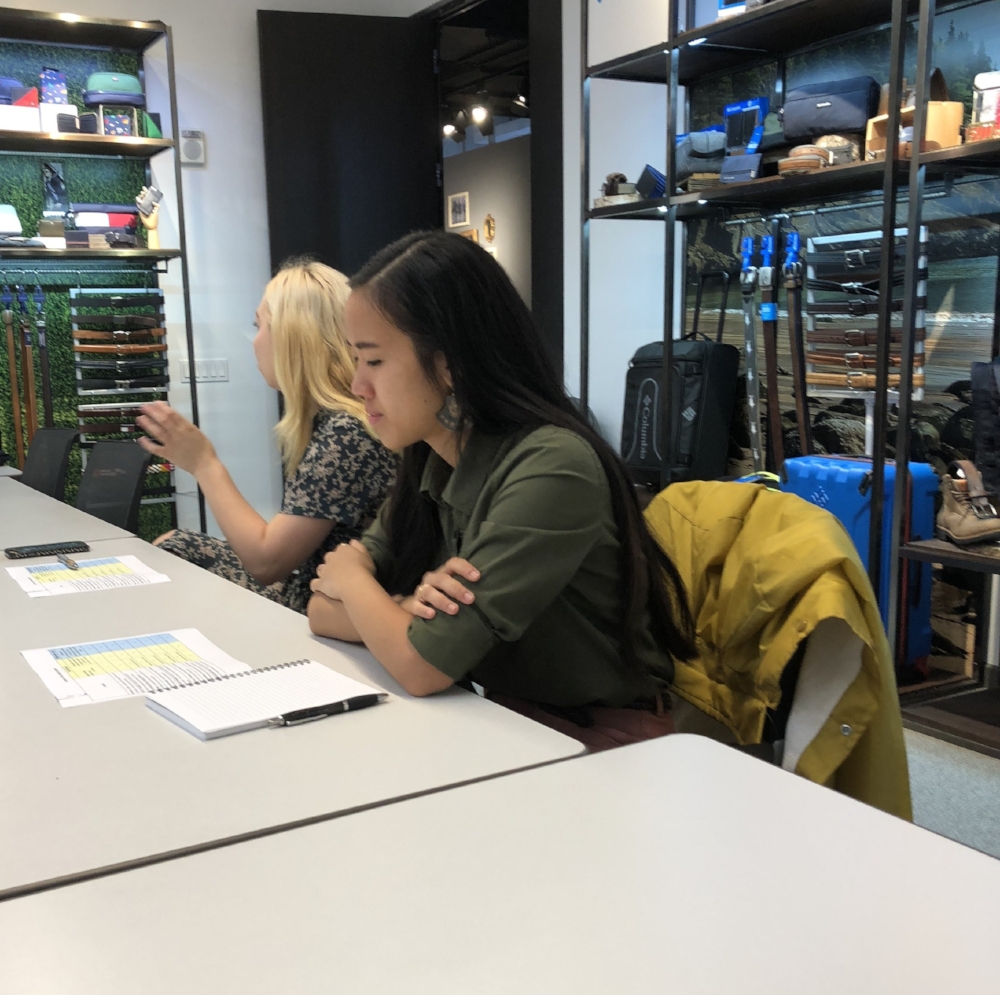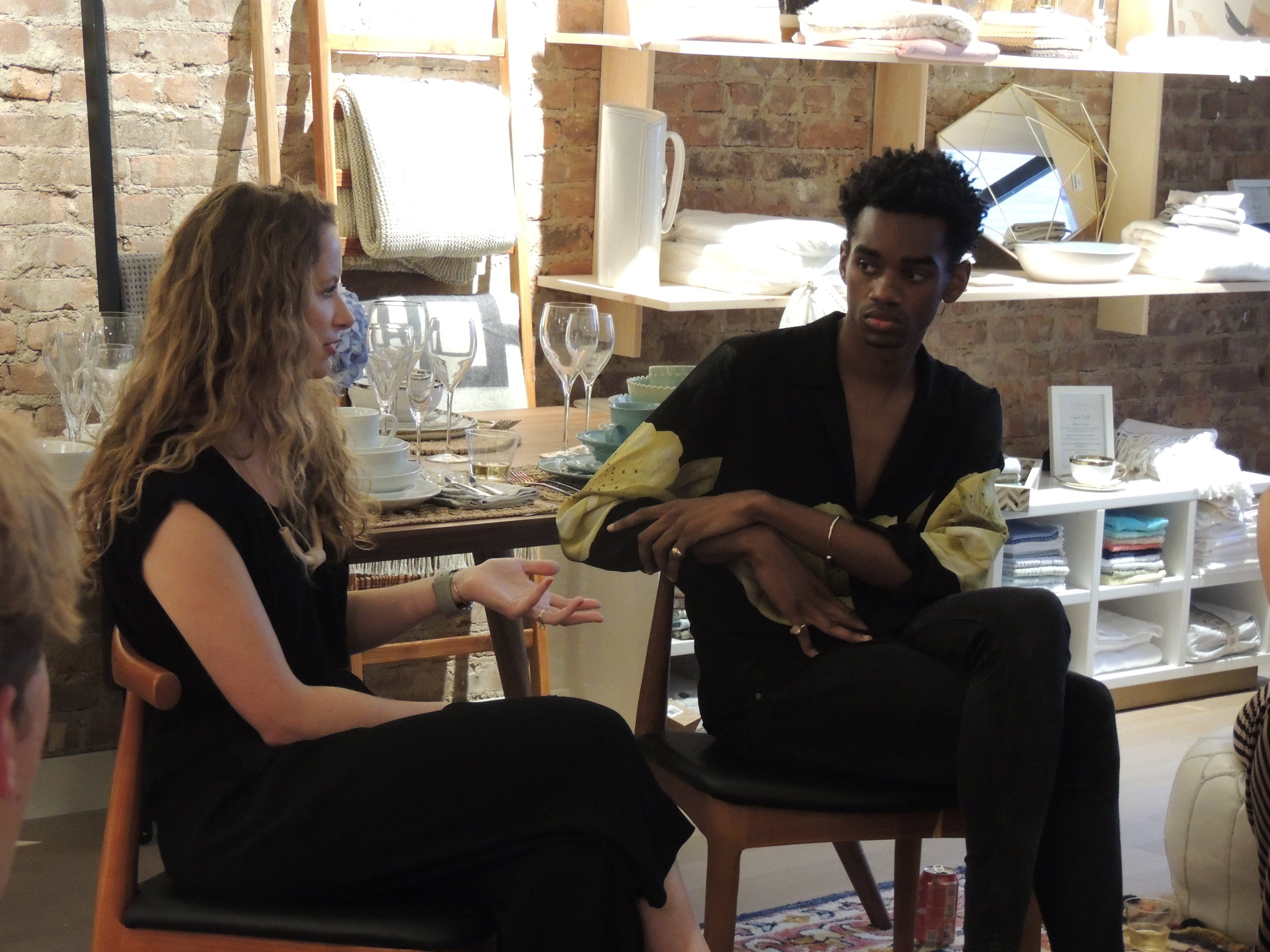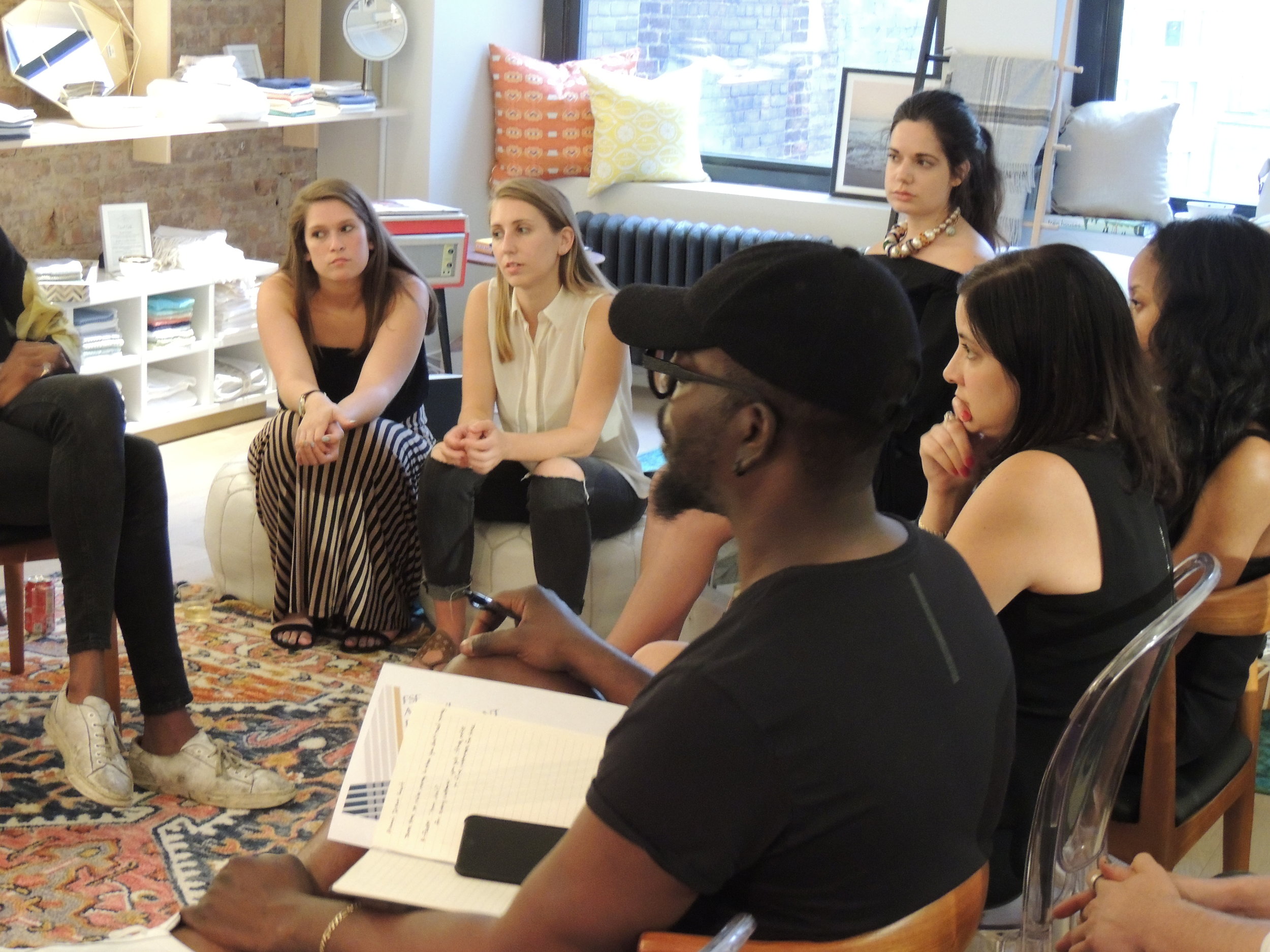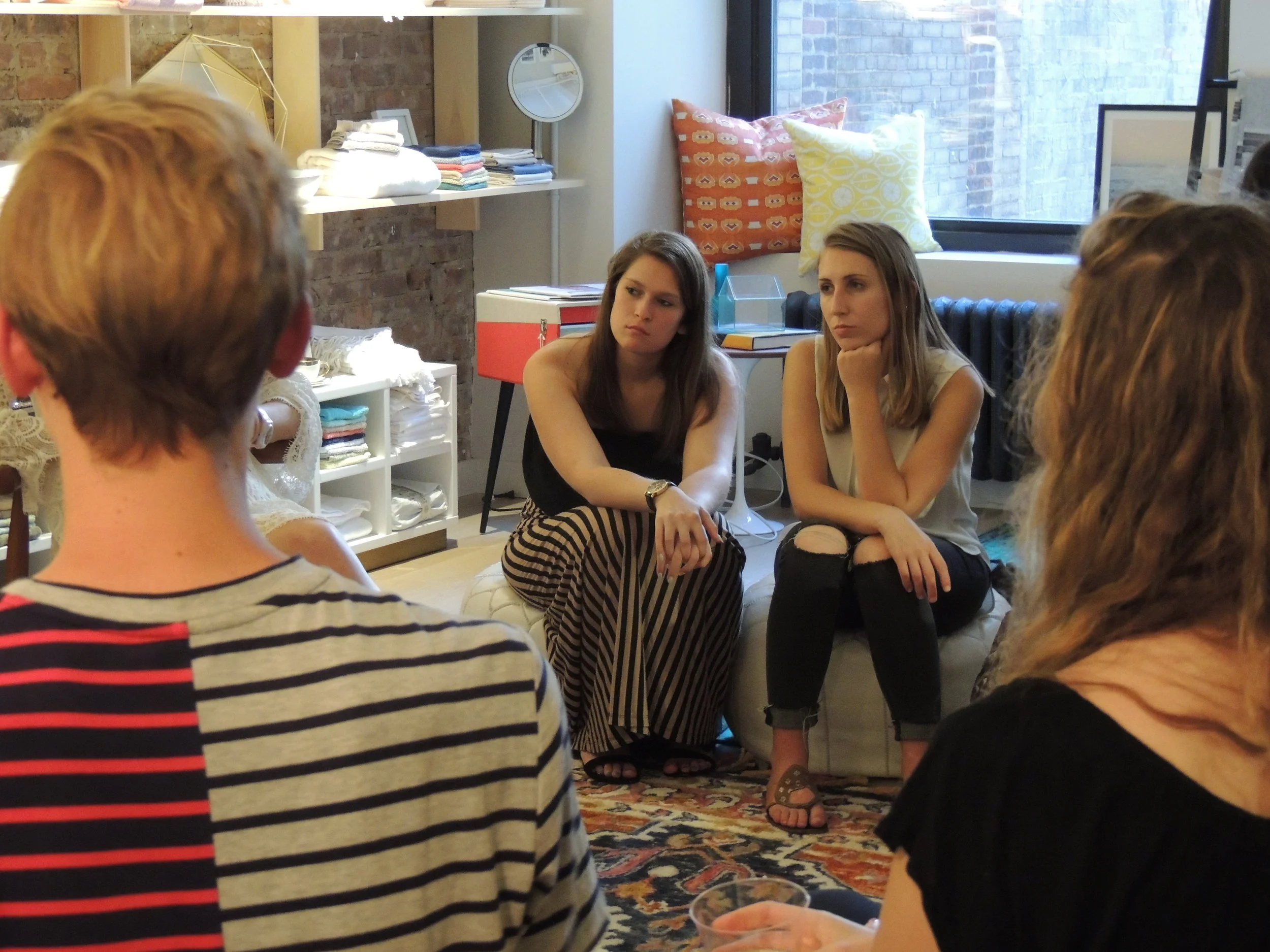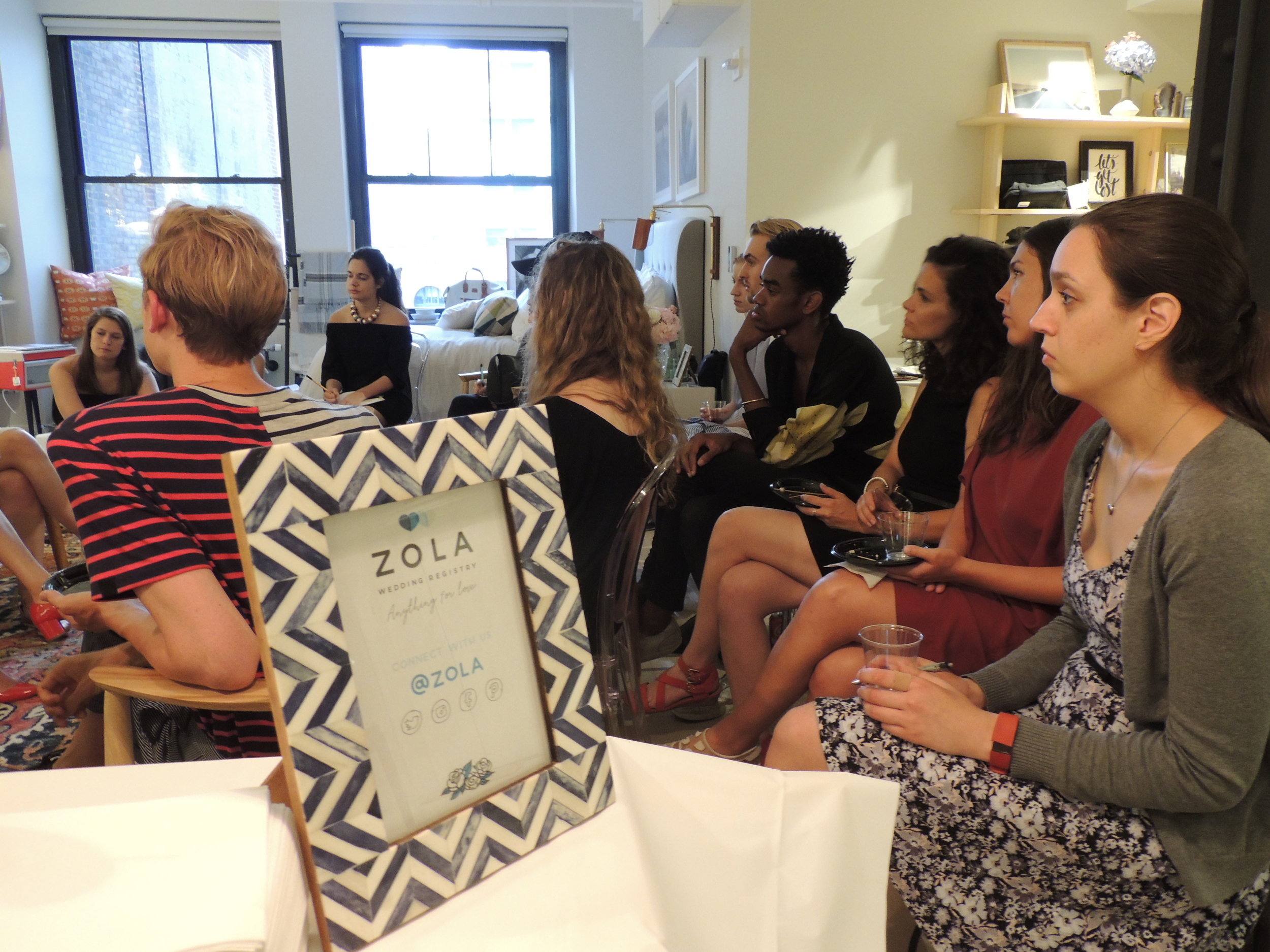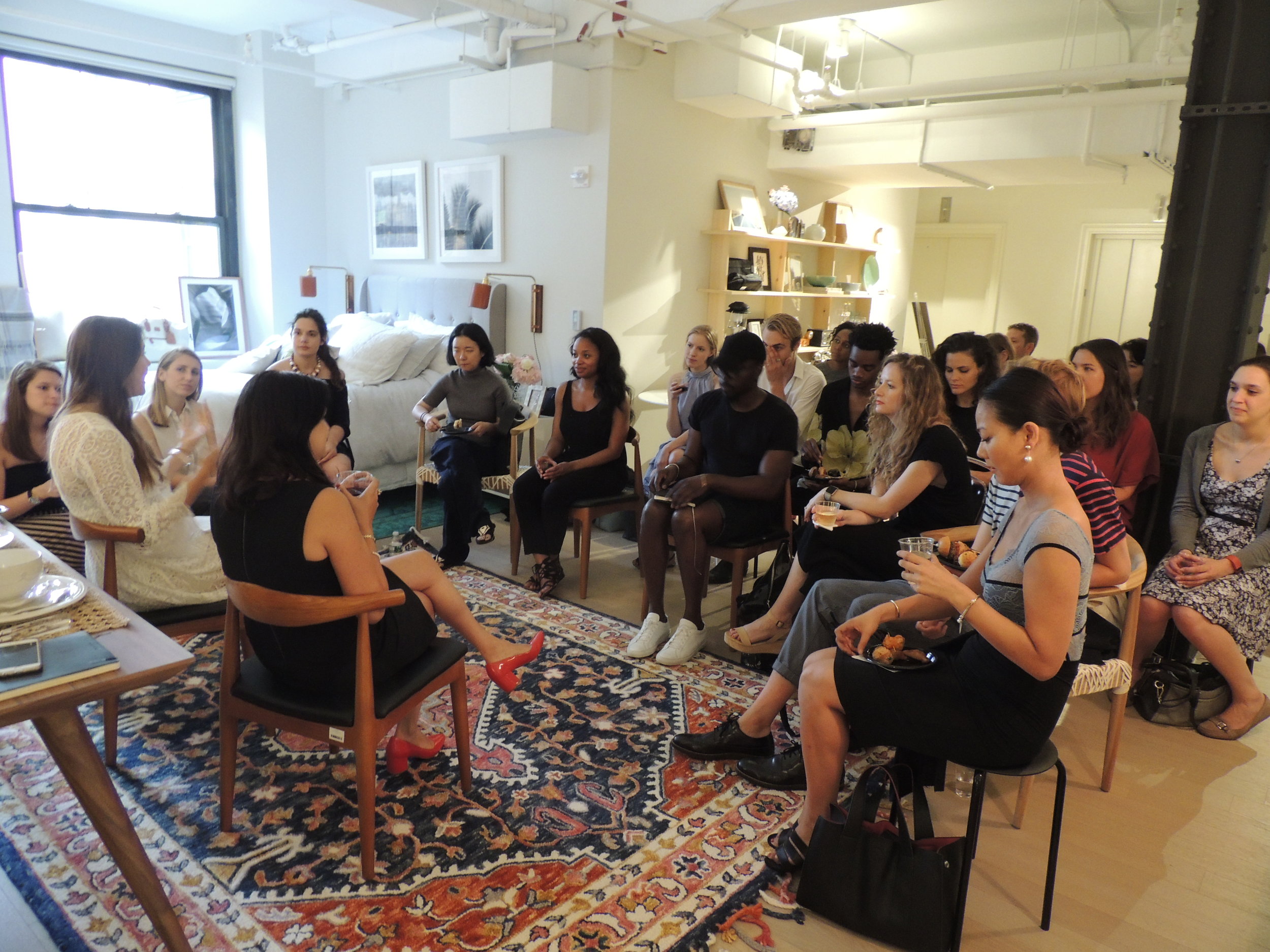On the evening of April 2nd, 2019, Fashion Scholarship Fund alumni, like myself, and Board members gathered in the SAP Innovation Lab at Manhattan's Hudson Yards to listen to four talented former scholarship winners pitch their businesses for the FSF Accelerator Grant kick-off. This event was held in “Shark Tank” style with four distinguished judges who lent their critique and expertise to the candidates.
The Fashion Scholarship Fund Accelerator Grant will give an FSF alumni-led seed and early stage startup $50,000 and mentorship from a team of industry experts. Requirements for eligibility: be a former FSF Scholarship recipient and in a leadership position at a startup in the fashion industry.
At the event on Tuesday, four of this year's applicants had 15 minutes to share their business models with the judging panel and receive their feedback. FSF Executive Director, Peter Arnold, opened the event and Mary Alice Stephenson led the panel. Judges, or the “pool of dolphins” as Mr. Arnold referred to them, included Anushka R. Salinas, Chief Revenue Officer for Rent the Runway, Laurel Pantin, Fashion Features Director at InStyle, Meghan Cross Breeden, Partner at Amplifyher Ventures, and Waris Ahluwalia, designer and CEO of House of Waris. All were more than willing to share their knowledge of the industry and made constructive suggestions to help the young entrepreneurs.
The applicants presenting were impressive. It was clear that each one had committed to dedicating all of their efforts to the success of their start ups. Jameel Mohammed, a contestant who presented his brand KHIRY, and Madalyn Joy Manzeck of Madalyn Joy Designs shared that they were the sole employees of their businesses, handling everything from sourcing to marketing to sales and beyond. The challenges of running a start up on their own, in an industry like fashion, is quite a feat. These applicants have seen what it takes to make it, many taking second jobs to make their dreams a reality. They all shared their successes and challenges during the night, and were very clear about how the Accelerator Grant could help move their businesses forward.
Jameel Mohammed, a scholarship winner from both 2015 and 2018 started his luxury jewelry company inspired by the beauty, art, and culture of the African Diaspora in 2015. Each piece of his collection is priced between $180-$1,350 and made of sterling silver coated in 18k gold. As the sole employee of the brand, Mohammed shared of some of initial success that he worked to gain, such as having a spot on the Barney's floor in NYC, being featured in a number of magazines including Vogue and being worn by celebrities like Michelle Obama and Serena Williams. However, he is still struggling to gain more visibility even after these successes. Ahluwalia advised Mohammed to remain focused on his current product assortment before doing any expansion. While Mohammed expressed his desire for his products to be made in the United States in the future, the judges warned him of the expense that he might incur. Judges and audience members, including myself, were impressed by the high quality of his products. It was very evident that Jameel is extremely passionate about his brand and collection and had already put in a great deal of work to make his brand succeed and reach larger audiences. Jameel hopes to use the scholarship and mentoring to advance his operations within the business and share African culture with more of the world.
Francesca Skwark shared her women's ready-to-wear brand "Checka". The athleisure loungewear collection features fun and spunky embroidery and printed phrases that empower women. Skwark is a 2008 scholarship winner from Iowa State, and she also shared of some of her struggles of being her own boss in the fashion industry. She started her first brand F.B.F (Fashion by Francesca) a few years after she graduated. However, she realized that it need some revamping in order to be the stable brand that she wanted it to be. Her current brand "Checka" took shape in 2016 after reevaluating some aspects of her business. Swark’s excitement about her brand was so evident and I was really blown away by how she has maintained such an impassioned spirit throughout the years of running her business. Francesca hires women in the Southern California area to do the embroidery and printing for her collection. Her clothes have made their way into hotels and gyms in California. During her presentation, Francesca noted how mentoring from industry professionals could really help her brand blossom if she won the grant.
Madalyn Joy Manzeck, a 2015 winner from the University of Wisconsin, also wowed the crowd with her brand Madelyn Joy Designs, a bespoke lingerie brand that she began in 2017, mainly targeting brides. Madalyn had a model display one of her designs, and I couldn’t believe the impeccable detail that went into each piece. Laurel Pantin saw Manzeck’s brand as having huge potential. As an editor and director, she sees many women who are unhappy with the selection of made-to-order lingerie, especially in plus sizes. Currently, Manzeck only works with women in Milwaukee. With the quality and price that Manzeck’s line offers, Pantin believes that there is a huge window of opportunity to reach more people who would “die to get their hands on” a bespoke piece. One of Madalyn’s goals is to expand her brand into ready-to-wear lingerie in order to reach more clientele, which the Accelerator Grant could surely help with.
Lastly, recent scholarship winner Nicholas Lee, a graduating senior at the Wharton School shared how his business, Arturo, could fill a big white space in the industry. He came up with the idea while he and his co-founder, Scott, were visiting local artisans in Italy. He realized that none of the shops they visited had an online platform to sell their products and he thought that there had to be a way for them to reach a larger audience. Thus began Arturo, an online platform for these master-craftsmen to have their products sold. Arturo takes care of all marketing, logistics, returns and more while the craftsmen abroad have to only continue making beautiful product. They currently have thirteen vendors in Italy and they are looking to expand to Japan and other parts of Europe to seek out other master craftsmen. I found Lee and his partner’s business extremely impressive, and many of the judges were quite positive in their feedback as well. Judge Meghan Breeden questioned some of the logistics aspects, as it can be quite expensive to ship product from Italy to other places in the world. Though Lee shared that they took part in the shipping and returning processes, anything that is returned is not shipped all the way back to Italy but is posted again to be sold. While they have a strong start to their business model going, the partners may have to work out how to differentiate themselves from the likes of Etsy and other similar online platforms.
I couldn’t say enough about the talent in the room on this night. Laurel Pantin said it best when she shared after the event that she was left totally inspired. The future of fashion is so bright because of these go-getter, young talents. The overarching feedback from the judges was to remain focused on each product or service that the applicants had pitched and to really listen to their customers. It will be extremely tough to narrow down the finalists, as this is just a preview of all the talent that the FSF has attracted for this grant. The FSF Accelerator Grant applications can be submitted until April 30th. The application can be found through the YMA FSF website at https://www.ymafsf.org/accelerator-grant. Finalists will be notified at the end of May, and the winner will be announced at the FSF Summer Kick-Off mid-June. I encourage any FSF alumni with self-startups in the fashion industry to apply for this grant and opportunity for incredible mentorship!
Written by: FSF Alum, Emma Brown
